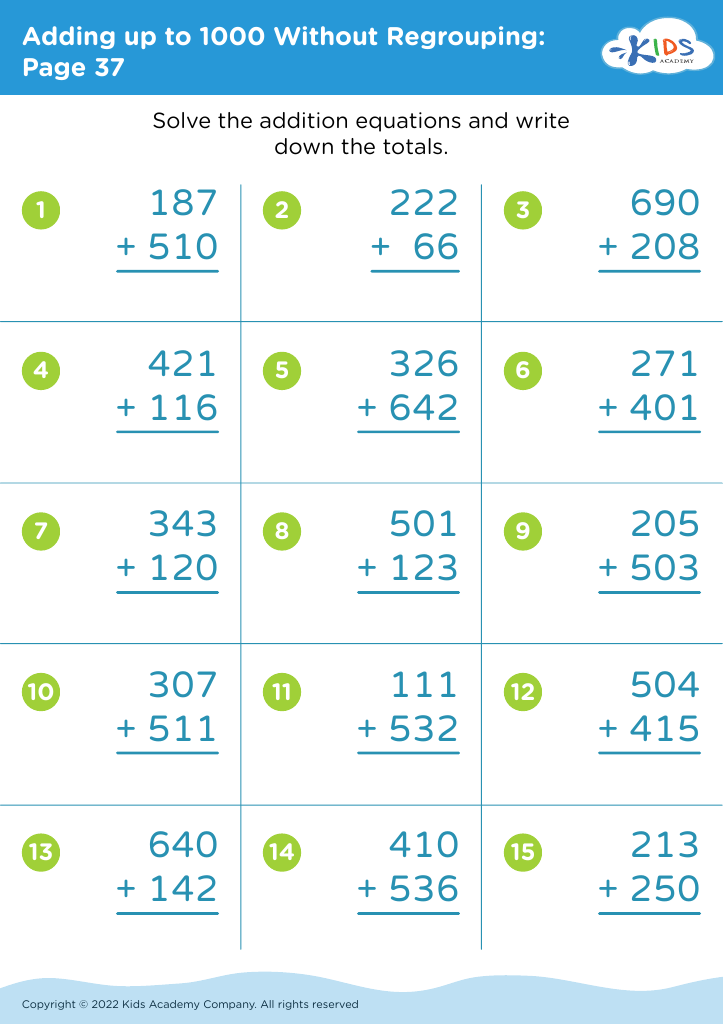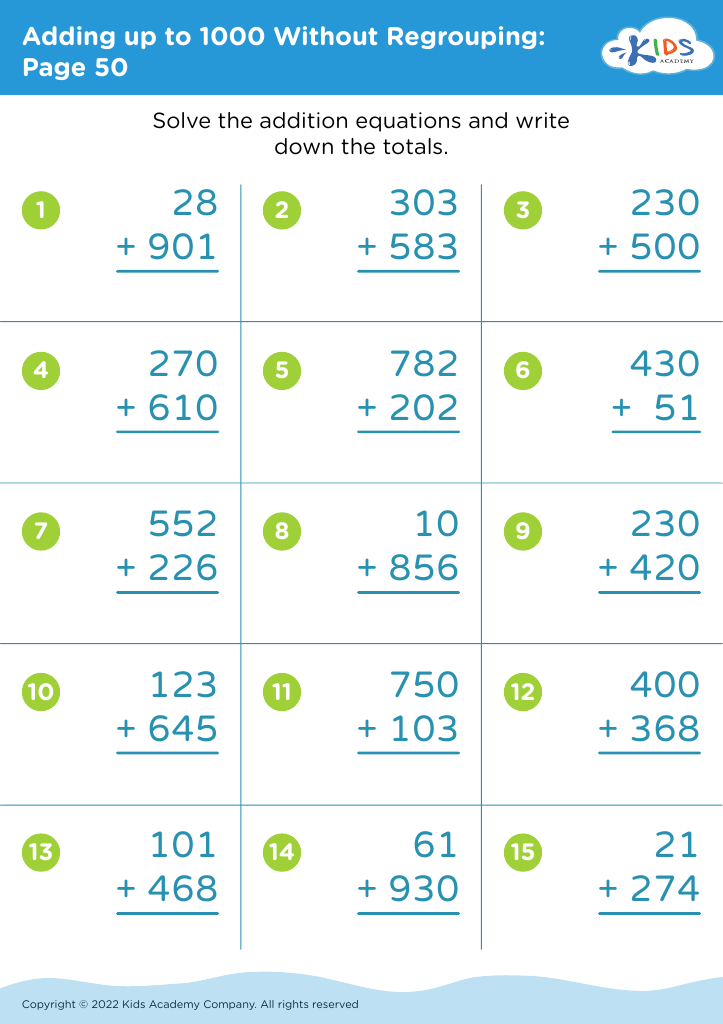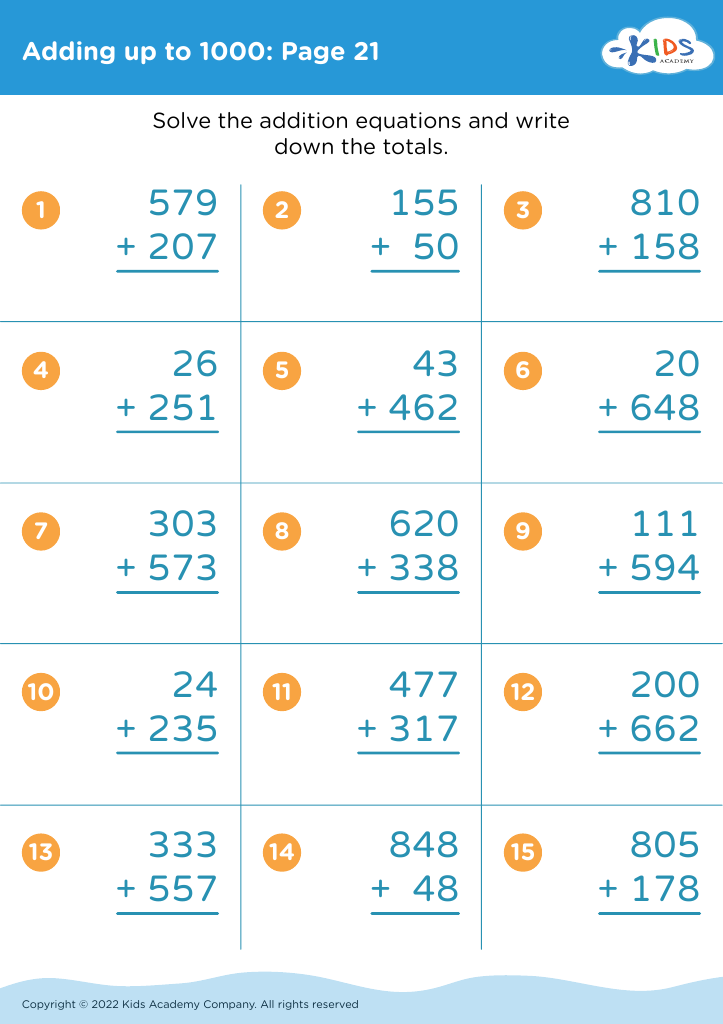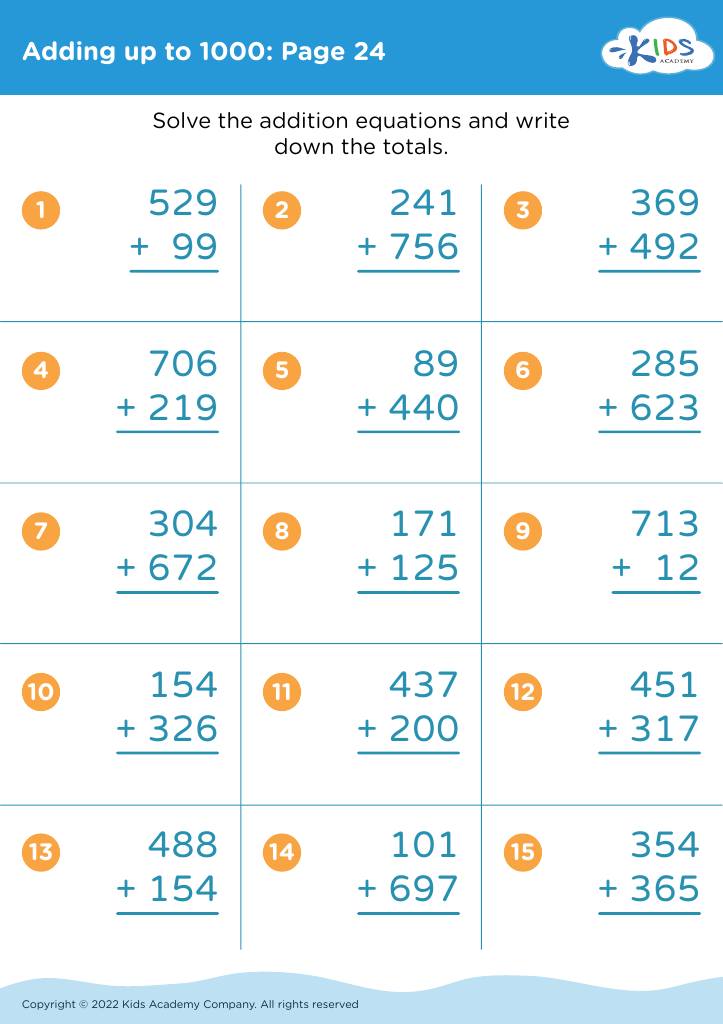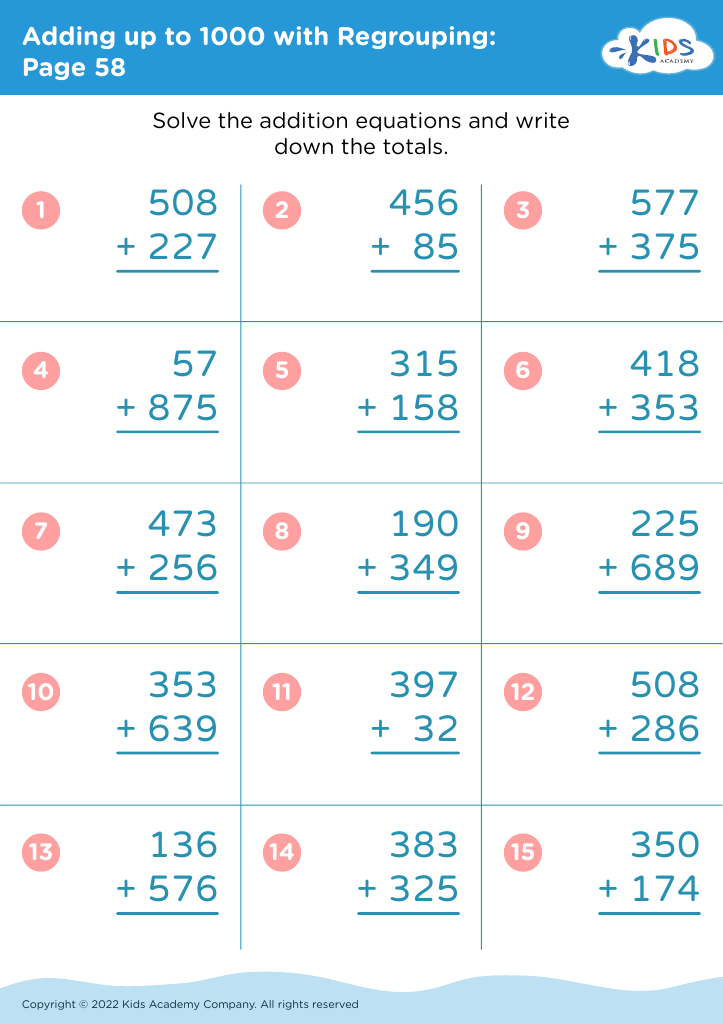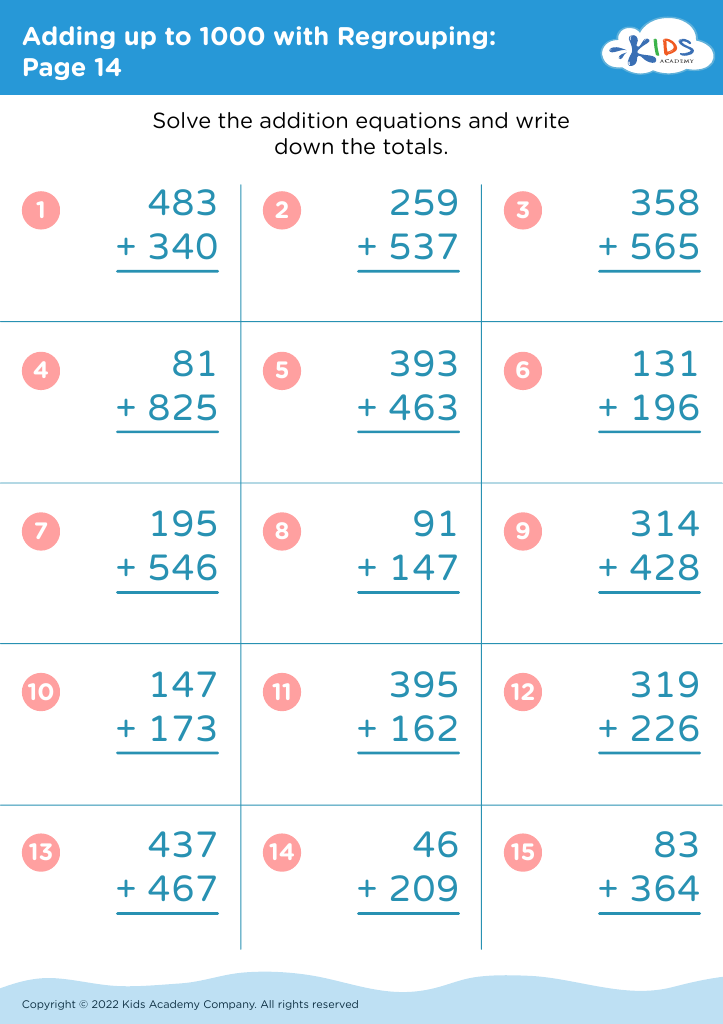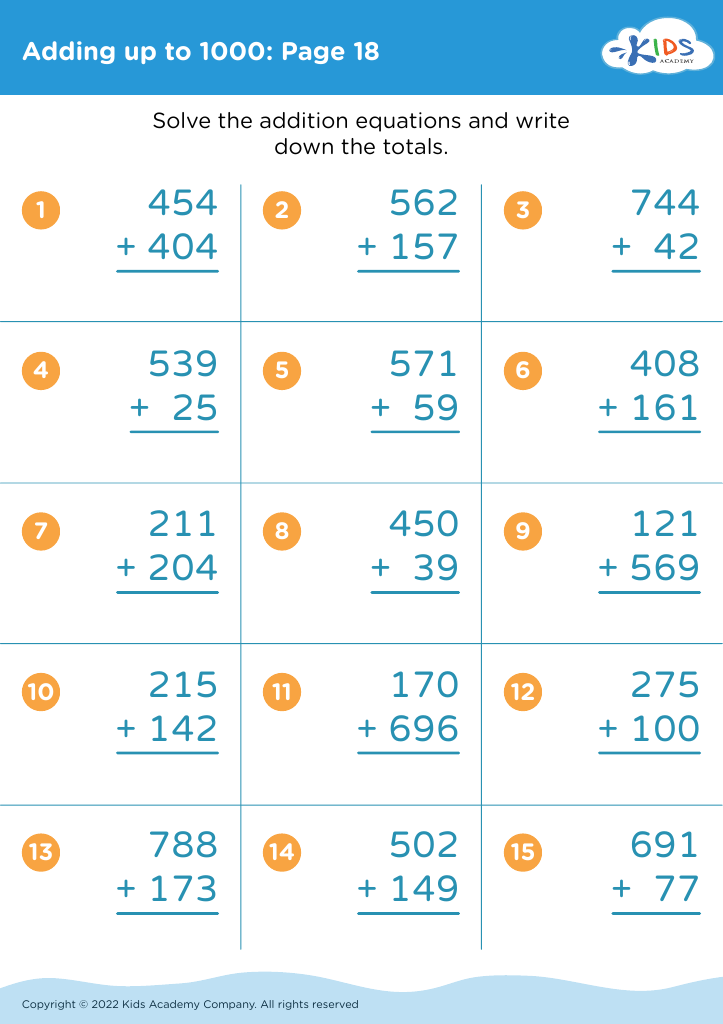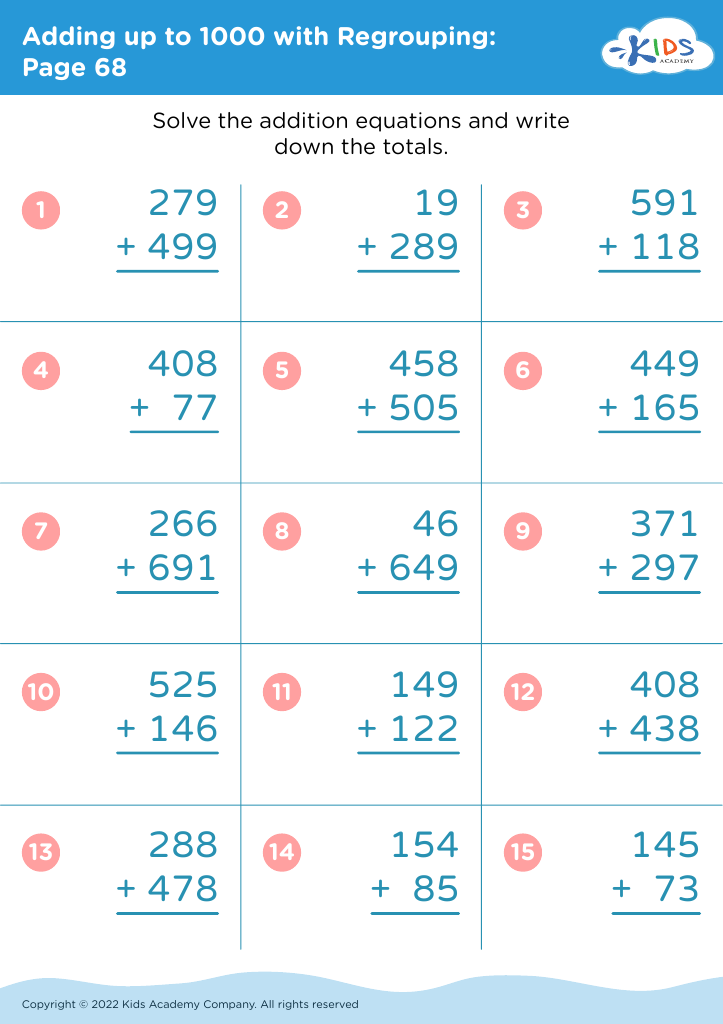Fine Motor Skills Adding up to 1000 Worksheets for Ages 6-8
12 filtered results
-
From - To
Unlock your child's potential with our "Fine Motor Skills Adding up to 1000 Worksheets," designed for ages 6-8! These engaging worksheets combine math practice with fine motor skill development, making learning both fun and effective. Children will refine their hand-eye coordination and dexterity as they navigate through colorful activities that involve counting, drawing, and writing. With a variety of exercises tailored to reinforce numerical concepts, these resources provide a comprehensive approach to learning. Perfect for at-home or classroom use, our worksheets ensure your child builds confidence in their math abilities while enhancing their fine motor skills. Start the journey to mathematics mastery today!
Parents and teachers should care about fine motor skills for children aged 6-8 because these skills are essential for various everyday tasks and overall development. Fine motor skills refer to the ability to use small muscles for precise movements, which are crucial for writing, drawing, cutting, and manipulating small objects. Developing these skills lays the groundwork for academic success and fosters independence in daily activities.
At this age, children are integrating fine motor skills into their classrooms and homes. Proficiency in these skills enhances their ability to participate in creative and academic activities, boosting their confidence. For instance, better handwriting leads to a more positive attitude towards schoolwork, thereby enhancing their learning experience.
Moreover, strong fine motor skills correlate with cognitive and social development. Engaging children in activities like crafting, puzzles, or playing with building blocks not only supports skill development but also nurtures creativity and problem-solving abilities. Furthermore, fine motor activities encourage hand-eye coordination and spatial awareness, essential for a variety of later skills such as sports or learning musical instruments.
In conclusion, fostering fine motor skills within this age group is integral to equipping children with the competencies they need for future success, emotional wellbeing, and functional independence.
